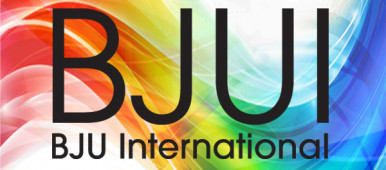Letters to the Editor are no longer included in the main BJUI journal, but we will continue to publish them on the BJUI website as an important part of the scientific debate.
Letters Policy
- Letters to the editor will now published in electronic form on the journal website (www.bjuinternational.com), not in the journal itself. As such, letters are not submitted to PubMed for indexing.
- Letters to the editor should be 500 words or less, preference is given to concise letters.
- Writers are limited to one letter published on the website per month.
- Letters must include full author contact details.
- All letters will be peer-reviewed, and we reserve the right to reject letters, or to edit them if they are accepted.
- If accepted, letters are sent to the authors of the paper being discussed, to give them the chance to make a response that will (if accepted) be published at the same time as the letter.
- Letters will not be open for public comment; replies must be submitted by email to the Editorial Office for review.




